John Walker
Young professional from Montana, USA. I currently work on projects for… Meer over John Walker
The annual Erasmus Data Summit serves as a platform at Erasmus University Rotterdam, bringing together professionals from the South Holland region who are involved in data, AI, and Immersive technologies (Learn more at https://ecda.eur.nl/erasmus-data-summit/).
While XR didn’t make it to the main stage as much as we had hoped, we found intriguing questions to take home. The immersive tech fair after the main stage was a popular place to try new things and see where AI is meeting XR in practice.
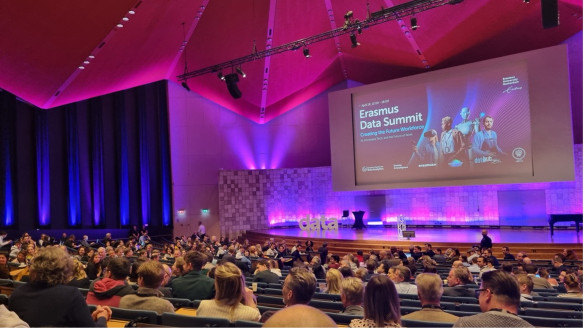
The XR Pilot hub attended the Erasmus Data Summit last week; where the future of the workforce was the primary theme. There was a lot of focus on (Generative) AI and robotics; but was it relevant to our educational institutions?
The annual Erasmus Data Summit serves as a platform at Erasmus University Rotterdam, bringing together professionals from the South Holland region who are involved in data, AI, and Immersive technologies (Learn more at https://ecda.eur.nl/erasmus-data-summit/).
While XR didn’t make it to the main stage as much as we had hoped, we found intriguing questions to take home. The immersive tech fair after the main stage was a popular place to try new things and see where AI is meeting XR in practice.
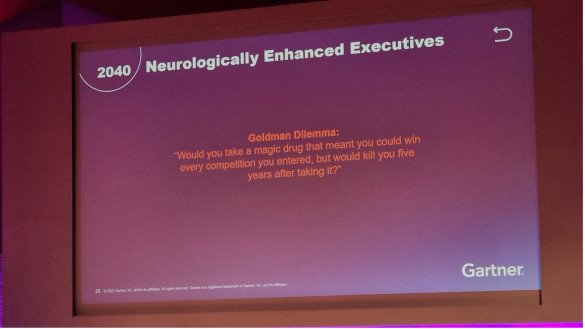
Unless you have been living under a rock, you know developments in Large Language Models (LLM’s) have been rattling through the halls of every large tech company in the last couple of years. The same technology took stage at this event with a focus on how the current workforce will change, and how we may want to prepare the upcoming workforce for disruption in expected workplace norms we teach today.
Frank Buytendijk took stage to discuss how bots are coming for the boardrooms, where in his world, leaders always want more information faster, but what is needed to do that is still unclear. Perhaps its neuro-enhancing drugs? Or faster, more disposable one-week strategies? Nevertheless, it became apparent that leaders of companies want to use AI and the tools we create today to be ahead of the game yesterday.
Frank’s talk showed us that people are very much willing to enhance themselves to get ahead, even if it changes their lives in fundamental ways. And for us it begs the question, is this true for our educational institutions as well? How far will we go as educational professionals to better our students? Ourselves? And for the future of education?
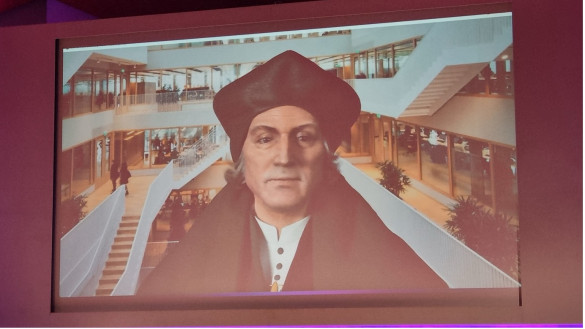
Generative AI tools will continue to shape the educational landscape and how learners engage with learning materials. Moreover, new images and real videos of robots entering the workforce will continue to change what we expect the future workforce will look like. Is this true for the educational institutions? Are the robots coming for the educational space? What perhaps was not discussed enough was how the combination of all these technologies: eXtended Reality, AI AND Robotics; this is where things can become really interesting. Videos of Figure 01 show how these technologies together can start to take shape.
For now, it’s difficult to see the forest through the trees. Finding signals that are meaningful for education is not only difficult, but new technologies like Generative AI, XR and robotics will change rapidly over the next few years. How can we prepare our institutions for disruptive technologies for the future? What value do these new technologies add to our work and to learning? We continue to take on big questions like this in Npuls!
This blog was written in collaboration with Maaike Wessels-Compagnie
Young professional from Montana, USA. I currently work on projects for… Meer over John Walker
Dit artikel heeft 1 reactie
Als lid van SURF Communities kun je in gesprek gaan met andere leden. Deel jouw eigen ervaringen, vertel iets vanuit je vakgebied of stel vragen.
love it 🔥
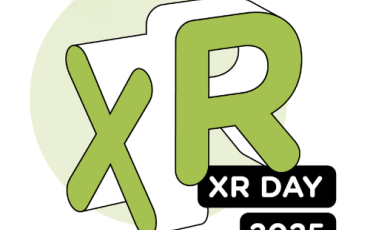
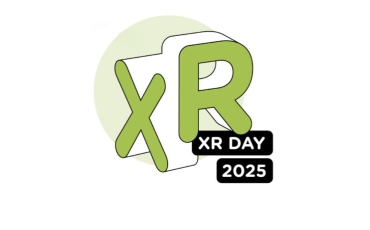
1 Praat mee